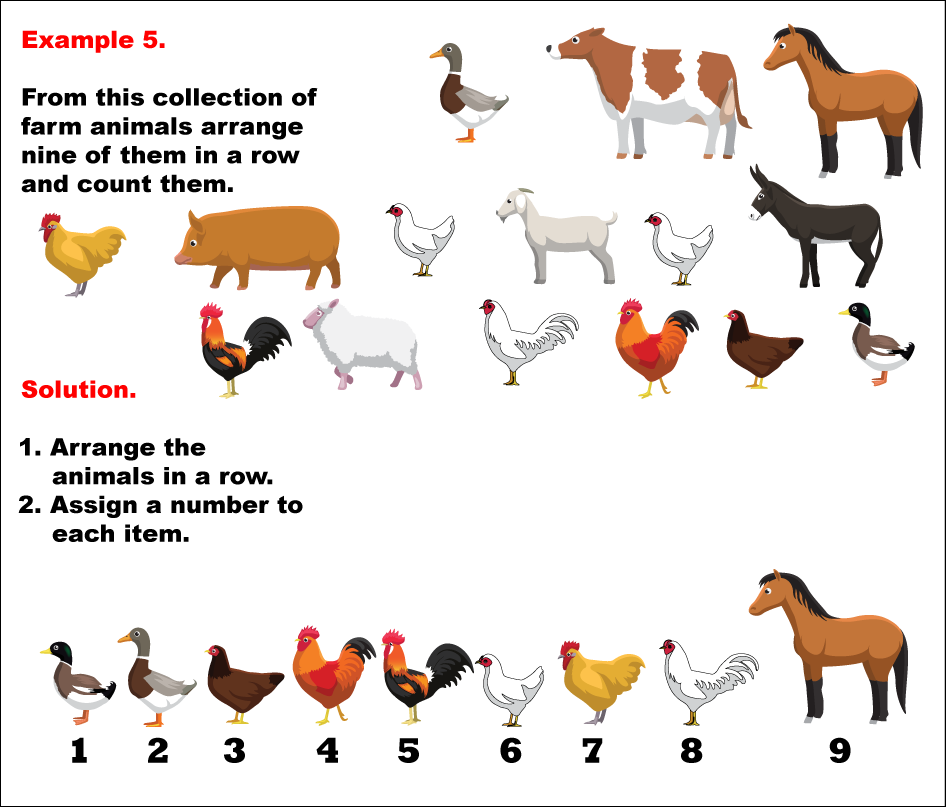
Display Title
Math Example--Comparing and Ordering Numbers--Arranging Items Numerically--Example 5
Display Title
Math Example--Comparing and Ordering Numbers--Arranging Items Numerically--Example 5

Topic
Counting and Arranging
Description
The image shows a collection of farm animals arranged in a row. There are 9 animals in total, including ducks, chickens, roosters, and a horse. Each animal is numbered from 1 to 9.
The task is to arrange nine animals in a row and count them. Solution: 1. Arrange the animals in a row. 2. Assign a number to each item.
In general, understanding how to compare and order items numerically is a fundamental math skill, especially when dealing with number sets or groups. By practicing these examples, students can grasp the underlying principles of comparison, which include recognizing patterns, ordering values, and applying logic to find solutions.
Seeing multiple worked-out examples is essential for students, as it provides a clear and varied set of illustrations that reinforce the learning process. Each example demonstrates slightly different approaches or configurations, which helps students build a well-rounded understanding of the concept.
Teacher’s Script: Let's look at this example together. Notice how the items are arranged, and think about why they are ordered in this particular way. Each number has a specific place based on its value, and seeing the items arranged this way helps us understand the concept of ordering. Now, let's try to find patterns in this arrangement and see if we can apply the same logic to similar examples.
For a complete collection of math examples related to Comparing and Ordering Items click on this link: Math Examples: Comparing and Ordering Items Numerically Collection.
| Common Core Standards | CCSS.MATH.CONTENT.K.CC.B.4, CCSS.MATH.CONTENT.K.CC.C.6 |
|---|---|
| Grade Range | K - 1 |
| Curriculum Nodes |
Arithmetic • Numbers and Patterns • Counting |
| Copyright Year | 2020 |
| Keywords | counting |